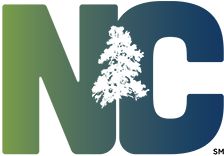
Release Number: NR NC 71
If you are getting rental assistance from FEMA and repairs to your flood-damaged North Carolina home are taking longer than expected, you may be eligible to receive continued temporary housing assistance. The aid is available to eligible homeowners and renters.
You may qualify for continued assistance if you demonstrate your need and develop a longer-term or permanent housing plan or demonstrate progress toward one. A contractor’s estimate on repairs or a report on repairs can point to progress. You need to keep rental receipts, canceled checks or money orders showing proper use of previous rental assistance. Recovery progress can be marked by accepting the first offer of adequate, alternate housing when it becomes available.
Two ways to search for alternate housing online:
- NCHousingSearch.org helps people locate available, affordable rental housing. This free service can be accessed online 24 hours a day and through a toll-free, bilingual call center, Monday through Friday, 9 a.m. to 8 p.m., at 877-428-8844.The FEMA Housing Portal (https://asd.fema.gov/inter/hportal/home.htm) is intended to help individuals and families who have been displaced by a disaster find a place to live. The portal consolidates rental resources identified and provided by federal agencies, such as the U.S. Department of Housing and Urban Development, U.S. Department of Agriculture, U.S. Veterans Administration, private organizations, and the public to help individuals and families find available rental units in their area.
Two weeks after you receive your initial rental assistance you will get an application from FEMA for continued temporary housing. The application reaffirms that you have an ongoing financial need for temporary housing, either because disaster-related repairs have not been completed or you have not been able to find permanent replacement housing.
You will need to submit the following documents with the completed application:
- A copy of your current lease or rental agreement signed by you and the landlord
- Rental receipts, canceled checks or money orders showing you used the previous rental assistance from FEMA for temporary housing
- Proof of pre-disaster housing costs
- Proof of pre-disaster and post-disaster current income for household members over the age of 18
Based on your financial need, FEMA will evaluate the information to determine if you qualify for ongoing federal aid.
To request an application for continued temporary housing assistance, call the FEMA Helpline at 800-621-3362for voice, 711 and Video Relay Service. If you are deaf, hard of hearing or have a speech disability and use a TTY, call 800-462-7585.
How HUD can help you:
- You can get disaster assistance from HUD if you lived in public housing, a Section 8 unit or had a Housing Choice Voucher before Hurricane Matthew. Contact the housing provider that assisted you before the disaster and contact HUD at 336-851-8058 or email at hudhelpingu@hud.gov.
- If you need homeowner information and assistance from HUD regarding foreclosure or questions about the next steps with your home, contact a HUD approved housing counseling agency by calling 800-569-4287. You do not have to have a FHA loan to meet with a HUD approved housing counseling agency, and there is never a fee for foreclosure prevention counseling.
For more information on the North Carolina recovery, visit fema.gov/disaster/4285 and readync.org. Follow FEMA on Twitter at @femaregion4 and North Carolina Emergency Management @NCEmergency.
###
Disaster recovery assistance is available without regard to race, color, religion, nationality, sex, age, disability, English proficiency or economic status. If you or someone you know has been discriminated against, call FEMA toll-free at 800-621-3362 or TTY at 800-462-7585.
FEMA’s mission is to support our citizens and first responders to ensure that as a nation we work together to build, sustain, and improve our capability to prepare for, protect against, respond to, recover from, and mitigate all hazards. Follow FEMA on twitter at @femaregion4. Download the FEMA app with tools and tips to keep you safe before, during, and after disasters.
Dial 2-1-1 or 888-892-1162 to speak with a trained call specialist about questions you have regarding Hurricane Matthew; the service is free, confidential and available in any language. They can help direct you to resources. Call 5-1-1 or 877-511-4662 for the latest road conditions or check the ReadyNC mobile app, which also has real-time shelter and evacuation information. For updates on Hurricane Matthew impacts and relief efforts, go to ReadyNC.org or follow N.C. Emergency Management on Twitter and Facebook. People or organizations that want to help ensure North Carolina recovers can visit NCdisasterrelief.org or text NCRecovers to 30306.
The U.S. Small Business Administration (SBA) is the federal government’s primary source of money for the long-term rebuilding of disaster-damaged private property. SBA helps homeowners, renters, businesses of all sizes, and private non-profit organizations fund repairs or rebuilding efforts and cover the cost of replacing lost or disaster-damaged personal property. These disaster loans cover losses not fully compensated by insurance or other recoveries and do not duplicate benefits of other agencies or organizations. For more information, applicants may contact SBA’s Customer Service Center by calling (800) 659-2955, emailing disastercustomerservice@sba.gov, or visiting SBA’s Web site at www.sba.gov/disaster. Deaf and hard-of-hearing individuals may call (800) 877-8339.

Release from NC Governor’s Office
Governor Pat McCrory’s request for federal direct temporary housing assistance has been approved to help people displaced from their homes in Columbus, Edgecombe, Robeson and Wayne counties following his meeting with FEMA Administrator Craig Fugate. The governor said the state hopes to add additional counties to the declaration in the coming days.
“Moving people out of shelters and into temporary and permanent housing continues to be one of our immediate priorities,” said Governor McCrory. “I want to thank our federal partners and my team for their incredible work, but we still have a lot of work to do. As our weather continues to be pretty, sunny and hot, many people are still facing dire circumstances in our state and we will continue to do all we can to help them recover.”
Temporary housing has proven challenging because many hotels and rental homes in the impacted communities were also flooded. Currently, 240 people remain in four shelters across the state and more than 1,700 families are living in temporary housing.
Last week, the governor requested direct temporary housing authorization from the federal government to help provide manufactured homes as a temporary housing solution. The state signed contracts last month to ensure that once the request was approved work could start immediately.
According to FEMA officials, manufactured homes are just one of many options available for temporary housing. Other options include rental homes, apartments and hotels. Based on the FEMA contract, more than 165 manufactured homes are now available in North Carolina with others on the way. Officials are continuing to assess the need for these homes in impacted areas.

